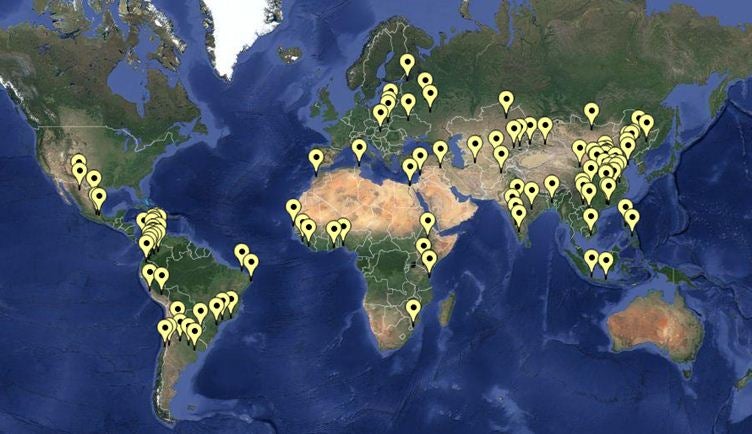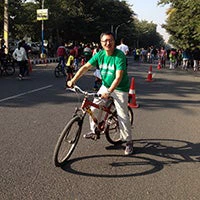
My first name – Ke – is so short that many think they are just the initial letters of two very long names. So they call me Dr. K. E. Fang when they first met me.
But I am actually very happy about it, because K. E. also stands for “ knowledge exchange.” Over the past seven years, I have been very proud of doing K.E. work to facilitate communication and collaboration between the World Bank and client countries, and between client countries themselves, in my specialized field – urban transport planning and management.
As an urban transport expert and a Task Team Leader for investment projects, I used to spend most of my time and energy in technical and operational work – such as advising our clients on policy issues, and how to prepare and implement infrastructure investment programs and projects.
I did not intentionally start knowledge exchange efforts until a very hot day in India in 2007 when I was invited to attend a knowledge sharing workshop organized by Mr. O. P. Agarwal, India’s then-Joint Secretary of Ministry of Urban Development (MoUD). Soon after I entered the hot meeting room, I realized it was not just an ordinary workshop where lectures were provided by officials and/or experts. Representatives of participating cities were requested to speak out about their problems and experiences at those workshops, and a few international experts – including me – were requested to share global experience, followed by questions, answers and open discussions.
I still remember how quiet it was in that hot conference room, when the international experts were making their presentations, how many hands were immediately raised when the question and answer session started, and how much appreciation we received during the coffee/tea break. After the workshop, I received quite a lot of emails from participants, many of them asking for “Dr. K.E.” to please share more knowledge of international good practices in urban transport. Since then, every time when I traveled to different countries and when I heard people call me “Dr. K E”, I could feel the heat – a “heated” demand for knowledge from the “outside world” as well as from the peers inside the country.
From 2007-2010, the World Bank and India’s MoUD organized a joint series of knowledge exchange events, including workshops and site visits, which not only helped preparation of the World Bank- and Global Environment Facility-financed Sustainable Urban Transport Project , but also helped MoUD’s efforts to energize India’s urban transport agenda.
Over the years that followed, I saw a boom in urban transport development in India. Urban transport, which was long neglected by the national and local governments in the past, started becoming a hot topic of policy debates – not only within the government, but also in public media. More and more urban transport plans and investments were developed and implemented.
When I moved to the East Asia and Pacific Region in 2010 and worked on projects in Vietnam and China, I noticed a similar desire and demand from our clients for knowledge, in addition to financing and technical support. Together with our urban, transport, World Bank Institute and communication colleagues, we have carried out a number of knowledge initiatives – either combined with lending and AAA operations, or separated as stand-alone knowledge events – including a joint World Bank-China knowledge program called China Transport Solutions Platform (TransFORM), currently led by my colleague Gerald Ollivier in our Beijing office.
TransFORM follows the principles of Science of Delivery. It aims to systematically facilitate K.E. through a scientific knowledge learning process which progresses from problem identification, innovative solution development, pilot testing and learning, knowledge generation and sharing, all the way to scaling-up.
It might be too early to evaluate outcome of the World Bank’s knowledge efforts in urban transport sector, but some early indications of success have emerged. One of them is the increasing demand for World Bank support in the urban transport sector, which leads to solid, growing and increasingly innovative urban transport lending programs, with a total financing commitment of $7.7 billion as of 2014.
While I am proud of being called Dr. K E, I would even be more proud when the World Bank is called the K.E. Bank.


Join the Conversation